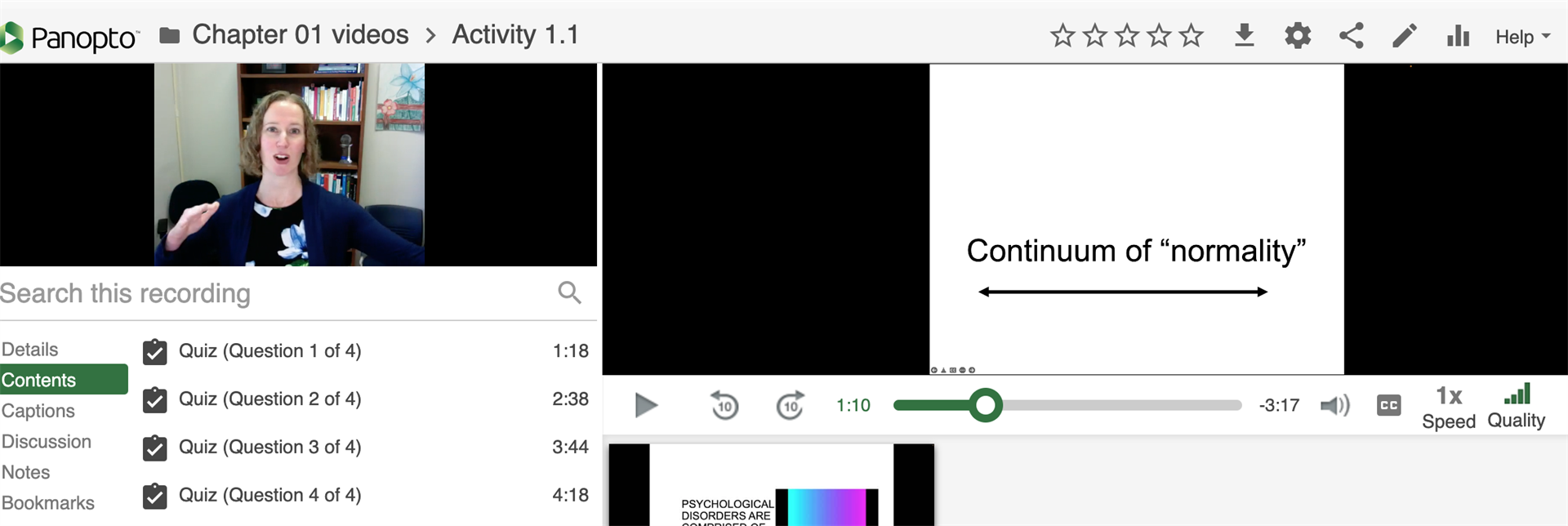 School name: University of Mississippi
School name: University of Mississippi
Type of school: 4-year university with masters and Ph.D. programs
School locale (including state and country): Oxford, MS, USA
How many years have you taught psychology? 12 years
Classes you teach: I currently teach Learning, Psychopathology: Integrative approaches, Psychology of parenting, and a graduate seminar on college teaching. I have taught Introductory psychology, Developmental psychology (lifespan and child), Children and Families: Community Work, Internships in Psychology, Statistics for the Behavioral Sciences, and Research and Writing in Psychology.
Specialization (if applicable): e.g., clinical, cognitive, teaching, etc. Clinical
Average class size: 100 (typical range is 10 – 150)
What’s the best advice about teaching you’ve ever received? It is actually advice I received from a clinical supervisor (Dr. Marvin Goldfried) about clinical work, but it is the best advice I have received that I apply to teaching. He told us “You are responsible to your (students), not responsible for your (students).”
What book or article has shaped your work as a psychology teacher? This is extremely hard to narrow down to just one; I think An evidence-based guide to college and university teaching: Developing the model teacher by Richmond, Boysen, & Gurung has shaped it the most though.
Briefly tell us about your favorite lecture topic or course to teach. I love teaching the psychology of parenting class; it is so applicable and so rewarding to see students changing their mind about controversial parenting practices. I also love it when they tell me they are implementing strategies either with their own children or with children they work with or are related to, and they are finding them beneficial.
Briefly describe a favorite assignment or in-class activity. I enjoy role-playing an individual who does not know the research about a topic and then challenging the class to teach and convince me to follow the research advice (e.g., why I should sleep at least 7 – 9 hours a night). The students come to life in a fun way as they realize I’m not going to give them the “right” answer and I’m going to pretend like I don’t even know it or the research backing it up.
What teaching and learning techniques work best for you? In my face-to-face classes I find activities like retrieval practice (written prompts as well as quiz-style questions), think-pair-share, and discussions of the material they are learning work best with my teaching style. In my asynchronous online courses, I find it most helpful to structure the courses with a variety of activities so that I can scaffold their learning process within lessons and across the semester. I try to have the general process for each module and unit start with them becoming familiar with the new material, then engaging actively with the new material, and finally demonstrating their understanding before moving on to more advanced coursework.
 What’s your workspace like? I am lucky to have a very nice office space with an L-shaped desk. So, I have a standing desk converter with my computer and two monitors on one part of the desk and the rest is available for other work and meetings.
What’s your workspace like? I am lucky to have a very nice office space with an L-shaped desk. So, I have a standing desk converter with my computer and two monitors on one part of the desk and the rest is available for other work and meetings.
Three words that best describe your teaching style. interactive, supportive, challenging
What is your teaching philosophy in 8 words or fewer? Set the contingencies to help my students succeed.
Tell us about a teaching disaster (or embarrassment) you’ve had and how you dealt with the situation. My first semester at the University of Mississippi I was asking for examples of passive genotype-environment correlations, where the parents pass on the genes but also create the environment that would make the child more likely to develop that characteristic or trait, such as Mozart’s dad also being a musician who had lots of musical instruments and other musicians in the house. So, many students gave excellent examples, and I thanked them for their examples. Then one student gave the example of the Mannings. I said, “I’m not familiar with the Mannings, but thank you for your participation”. All 100+ students audibly gasped and then the student said, “Like Peyton Manning?!?”. I immediately turned very red as I realized that he was talking about the football family that is famous on campus. I then talked about how they were getting to see my reaction to embarrassment as I kept blushing.
What about teaching do you find most enjoyable? Helping students learn information and strategies that are going to help them long-term.
What is something your students would be surprised to learn about you? I have been with my husband since we were 15.
What are you currently reading for pleasure? I'm trying to decide on my next book, I finished one last night. One of my favorite books that I read this year was The vanishing half by Brit Bennett.
What tech tool could you not live without? Definitely TextExpander
What is your hallway chatter like? What do you talk to colleagues about most (whether or not it is related to teaching/school)? What is going on in the department and each other's work lives as well as personal lives.
Has your teaching changed because of the Covid19 pandemic? If so, how? (positive and/or negative changes) The primary change in my teaching is that I am much more flexible with deadlines. I am still trying to figure out the best way to be flexible while also keeping students on track. Another big change is that I stopped giving in person exams if the exam can be done on our learning management system just as effectively.
